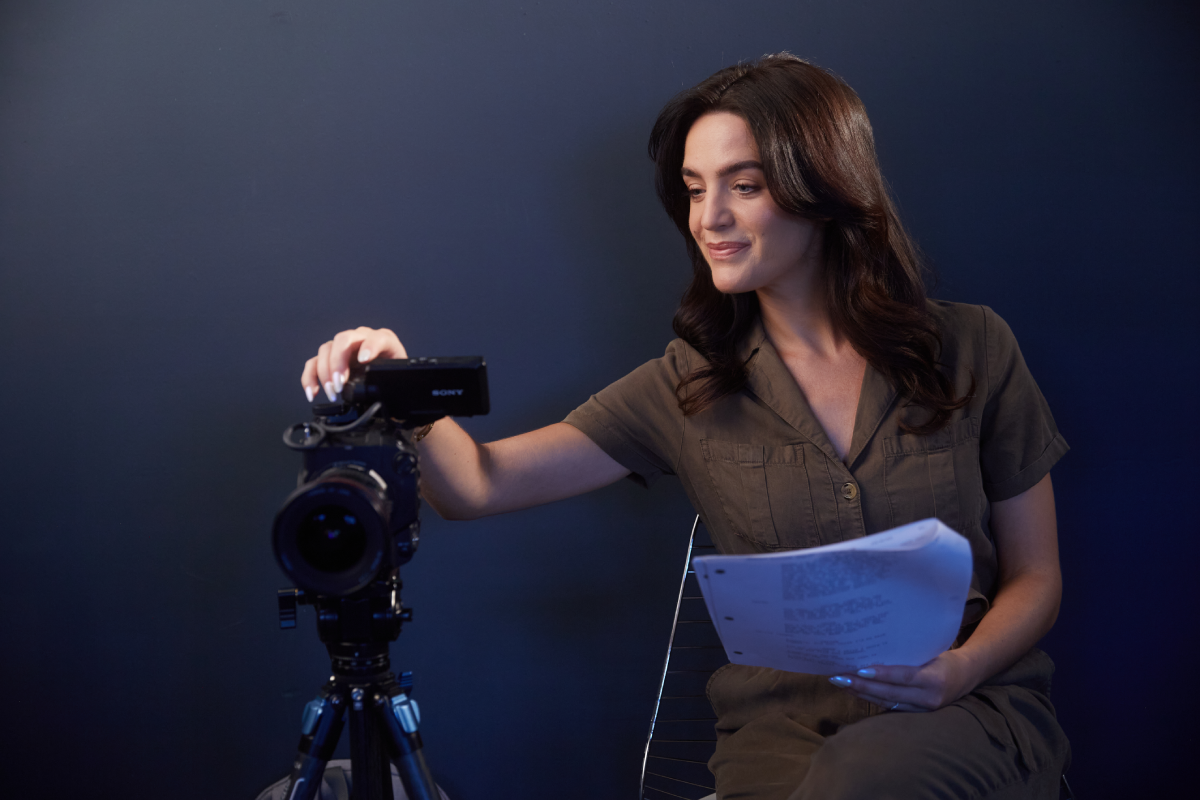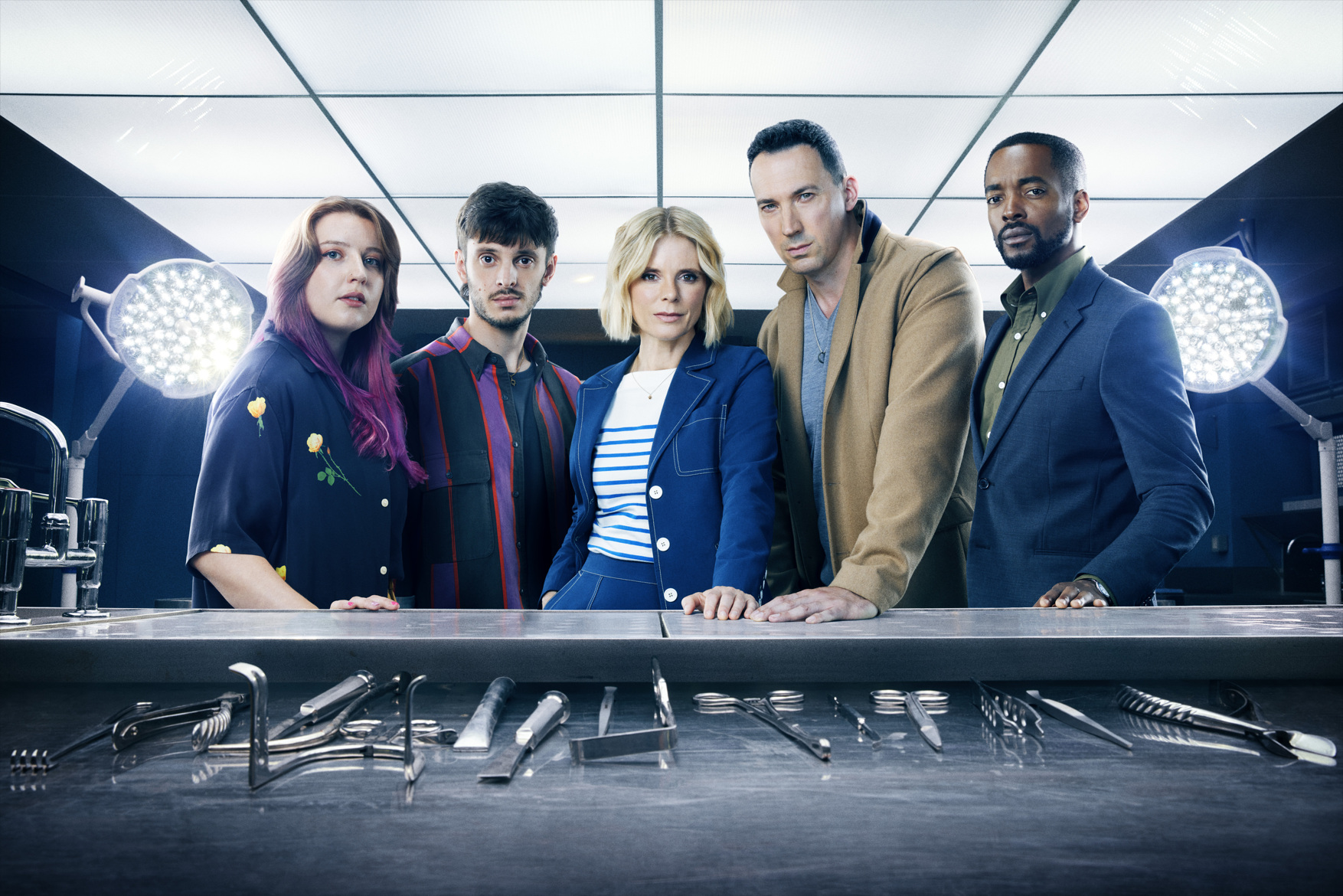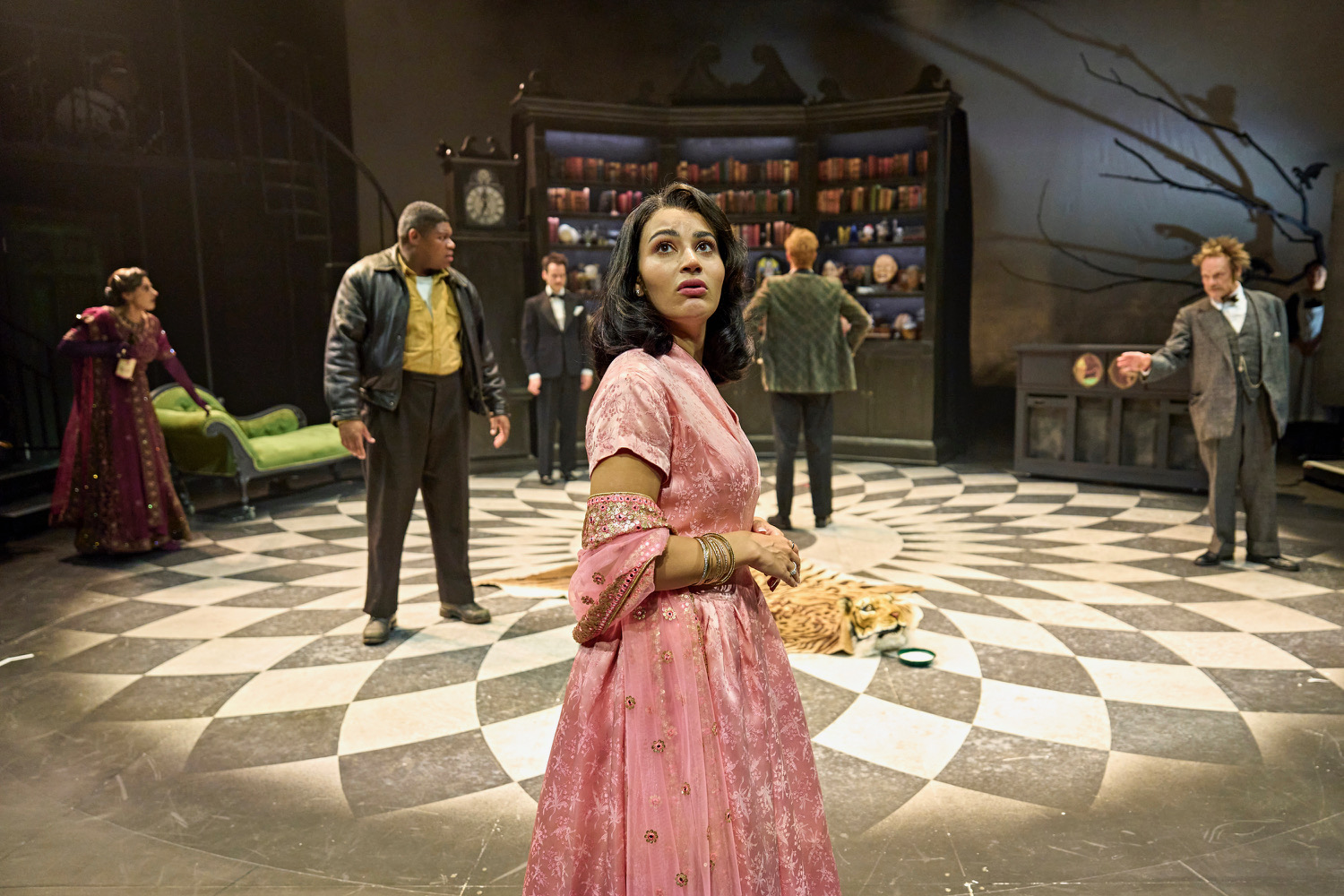‘Silent Witness’ and ‘Luther’ actress Maria Miles shares her experience of acting with Multiple Sclerosis.
When I was 16, I knew I wanted to be an actress, but achieving my dream wasn’t so simple. I was 18 when my Multiple Sclerosis (MS) began. Mountview Drama School wanted me, so that’s where I studied for three years.
In my first year, I lost sight in my left eye for a month. Our wonderful GP secretly asked my dad how I was several months later, as sight loss is the first sign of MS. At 19 years old, my parents didn’t want to worry me, so I just went for lots of tests and it cleared up naturally.
Luckily, MS didn’t hamper my time at college! It would mainly strike during the holidays when I was with my parents. I was officially diagnosed with MS shortly after my graduation in the late 80s. I was dreadfully upset, but I still continued with my aim to be an actress.
This was helped by my being cast as ‘Beatie Bryant’ in Roots at the National Theatre – a thrilling opportunity but a terrifying prospect. At the start of my career – while it was jolly exciting to be a part of this wonderful profession, it was also very scary – I felt I had to hide my MS from all involved.
The Challenges of Hiding My MS
In the 80s, the industry was far less tolerant than it is now. I told myself that I mustn’t reveal my MS to anyone. I was afraid that I wouldn’t be employed. This really didn’t help my condition, but I ignored it, as I was becoming rather successful.
I also had to pretend I could see and focus on one person when my eyesight was misbehaving and guess if I was looking into the camera correctly, too. My eyesight has been badly affected by MS in varying forms – from clear double vision to temporarily losing sight in one eye.
This continued for many years until I was cast as ‘Thomasina’ in Tom Stoppard’s glorious Arcadia. Both Tom and Trevor Nunn directed the play, and I was having a wonderful time until, out of the blue, a very nasty MS spasm hit.
This particular one had affected me many times before, including when I was trying to rehearse Roots at the National Theatre. It’s when everything is affected – my head spins around like the spin-drying cycle on a washing machine. There’s nothing I can do to prevent it. It continues when I lay down to sleep and it’s still there when I wake. It’s like a terrible nightmare you can’t wake up from.
My balance and walking at this time was appalling and I walked like a drunken penguin. Only after a three-week course of steroid tablets was I well enough to go back to Arcadia. My understudy, no doubt, was happy for the opportunity, but I felt terribly distraught about not being able to perform and letting people down.
Revealing my MS to the Industry
After Arcadia, I accepted it was time to ‘come out’ to the acting world about my great friend MS and take it from there. When I began my ‘new career’ (so to speak) as an actor with MS, I felt very relaxed. My secret was out and it was so freeing to have nothing to hide.
This all sounds quite dramatic, but I never thought of the negative aspects. I’ve always dealt with things in whatever form they choose to manifest.
When I did ‘come out’, my agent, colleagues, directors and friends were all very supportive. I was so happy and liberated that I no longer had to hide things.
But my circumstances became very different as far as roles go. My walking, balance, etc, meant I could no longer work as I had before. MS roles were all I could do. This was a little limiting, but I’m very thankful to have been able to experience and demonstrate the whole gamut of emotions in my previous work.
Since revealing my MS to the industry, I’ve had successful auditions for Skins, Luther, Silent Witness, Doctors, Holby City and Dublin Murders. My agent, Sharry Clark, thought Luther would be too brutal for me, but no, it was great! The directors and crew have always been smashing and the production teams for Channel 4, BBC and ITV have all been excellent.
Other actors who have to deal with conditions and want to hide this for fear of never being employed must accept there is work for us. Directors are not to be scared or concerned about working with us… We will not let you down. We will work just as hard, if not harder than others, to prove to ourselves and all that we are still more than capable!
Succeeding as an Actor with MS
For those working with disabled actors, the wheelchair is a type of industry ‘shorthand’ – a visual cue for the viewer with no explanation of disability required. I mean no disrespect, but thankfully, I am not in a chair yet.
It is, however, difficult to explain how MS affects each person. Sometimes, MS sufferers use wheelchairs quite rapidly following diagnosis, which is a terrible tragedy. Others, like me, walk in an awful manner, needing a stick or two, a disabled walker or direct assistance from a reliable spouse or friend.
Slurred speech, whether slight or more noticeable, can also be mistaken for something else. There is an array of other issues, as it is with folk dealing with diverse neurological conditions.
MS can be so varied. It’s not a condition that’s instantly recognisable. Sometimes, only the crazy walking can acutely advertise the disability, such as walking with a wide gait and one’s arms out for balance. I just need a stick and someone’s strong arm when walking.
Disabled actors now have the opportunities to play larger roles. I was given a fabulous role in Silent Witness which proves just that!
Over the years, I’ve completely lost the use of my arm and my leg, but thankfully not when I’ve been working. My fabulous parents were there to take me home and look after me. You name it, I’ve lost it. It’s a ‘multiple condition’, after all. It hasn’t all been a loss, though. 18 years ago, I also met my wonderful husband.
My first role as an MS character was in Skins, followed by a role in Luther with the awesome Idris Elba. Idris was so nice – he even waited behind to congratulate me on my performance! There was nothing to fear as the cast and crew in both productions were truly supportive.
In all the MS roles I’ve been offered, I’ve been very well cared for and had everything prepared for me. Although it’s been difficult, my MS hasn’t stopped me from being fortunate enough to work with fabulous directors such as Stephen Soderbergh, Sir Peter Hall, Edward Hall, Sir Trevor Nunn, Patrick Garland, Simon Curtis, Declan Donnellan, Simon Langton and John Schlesinger. I’m so happy to have worked with these extraordinary people!
An honourable mention must also go to my wonderful agent, Sharry Clark, who has been so marvellous and supportive over our many years together. She always ensures I have the correct support when I’m working, a car to pick me up and bring me safely home and the correct support on set.
Strangely, it does all feel rather marvellous. Having worked for so long and with such remarkable people, I don’t feel any pressure or panic to get the next job or to make a point to others – or indeed myself! I feel so much more relaxed and calmer, which is superb for an MS state of mind. I’ve finally accepted that MS and acting – while not conducive chums – are inexorably intertwined with me!
I hope all disabled actors will be as fortunate as I’ve been. Actors with MS, given the right support, are capable of doing more than one thing. All they need are the right opportunities to convey their talents.
Remember: self-belief is essential and trusting in your acting gifts is required by all.
Take a look at our website for industry news and advice, and interviews with casting directors, agents and actors.
 Maria Miles is an actress best known for her theatre performances in ‘The Wild Duck’ (directed by Sir Peter Hall), Cheek by Jowel’s ‘Don’t Fool With Love’, ‘Arcadia’ (directed by Trevor Nunn), ‘King Lear’ in New York (directed by Patrick Garland), ‘Cain’ (directed by Edward Hall) at Minerva Theatre Chichester, and her TV performances in ‘The Cinder Path’, ‘Cold Comfort Farm’ and ‘Cadfael’. She was also the voice of ‘Juliet’ in Arkangel’s unabridged production of ‘Romeo & Juliet’, opposite Joseph Fiennes.
Maria Miles is an actress best known for her theatre performances in ‘The Wild Duck’ (directed by Sir Peter Hall), Cheek by Jowel’s ‘Don’t Fool With Love’, ‘Arcadia’ (directed by Trevor Nunn), ‘King Lear’ in New York (directed by Patrick Garland), ‘Cain’ (directed by Edward Hall) at Minerva Theatre Chichester, and her TV performances in ‘The Cinder Path’, ‘Cold Comfort Farm’ and ‘Cadfael’. She was also the voice of ‘Juliet’ in Arkangel’s unabridged production of ‘Romeo & Juliet’, opposite Joseph Fiennes.
Headshot credit: Sheila Burnett


















